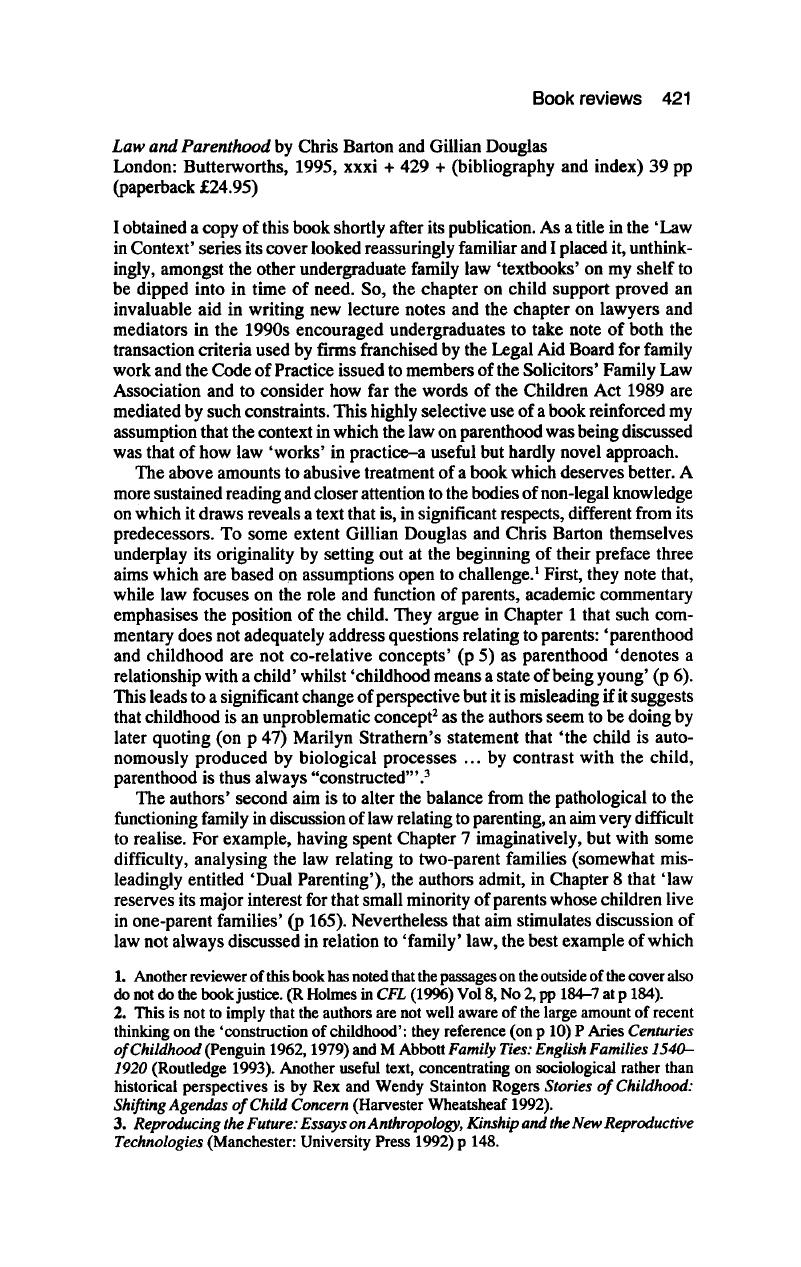No CrossRef data available.
Article contents
Law and Parenthood by Chris Barton and Gillian Douglas London: Butterworths, 1995 xxxi + 429 + (bibliography and index) 39 pp (paperback £24.95).
Published online by Cambridge University Press: 02 January 2018
Abstract

- Type
- Book Review
- Information
- Copyright
- Copyright © Society of Legal Scholars 1996
References
1. Another reviewer of this book has noted that the passages on the outside of the cover also do not do the book justice. (R Holmes in CFL (1996) Vol8, No 2, pp 184-7 at p 184).
2. This is not to imply that the authors are not well aware of the large amount of recent thinking on the ‘construction of childhood’: they reference (on p 10) P Aries Centuries of Childhood (Penguin 1962,1979) and M Abbott Family Ties: English Families 1540- 1920 (Routledge 1993). Another useful text, concentrating on sociological rather than historical perspectives is by Rex and Wendy Stainton Rogers Stories of Childhood: Shifring Agendas of Child Concern (Harvester Wheatsheaf 1992).
3. Reproducing the Future: Essays on Anthropology, Kinship and the New Reproductive Technologies (Manchester: University Press 1992) p 148.
4. D Nelken ‘Getting the Law “Out of Context”’ Socio-Legal Newsletter (1966) No 19, pp 12-3
5. For instance, Douglas and Barton State at the beginning of Chapter 14 that ‘The major question to be answered about the public care system’ (p 328) is whether ‘care’, in practice, is ‘better’ for children than no intervention by the state. To ‘answer’ such a question nonlegal systems of knowledge (notably that of the psy-sciences) have to be drawn on for criteria to make such an assessment. In autopoietic theory this would not be ‘context’ but a separate system for generating ‘truths’ which may or may not be capable of reconstruction within other discourses.
6. The work of John Eekelaar and Michael Freeman, for example.




